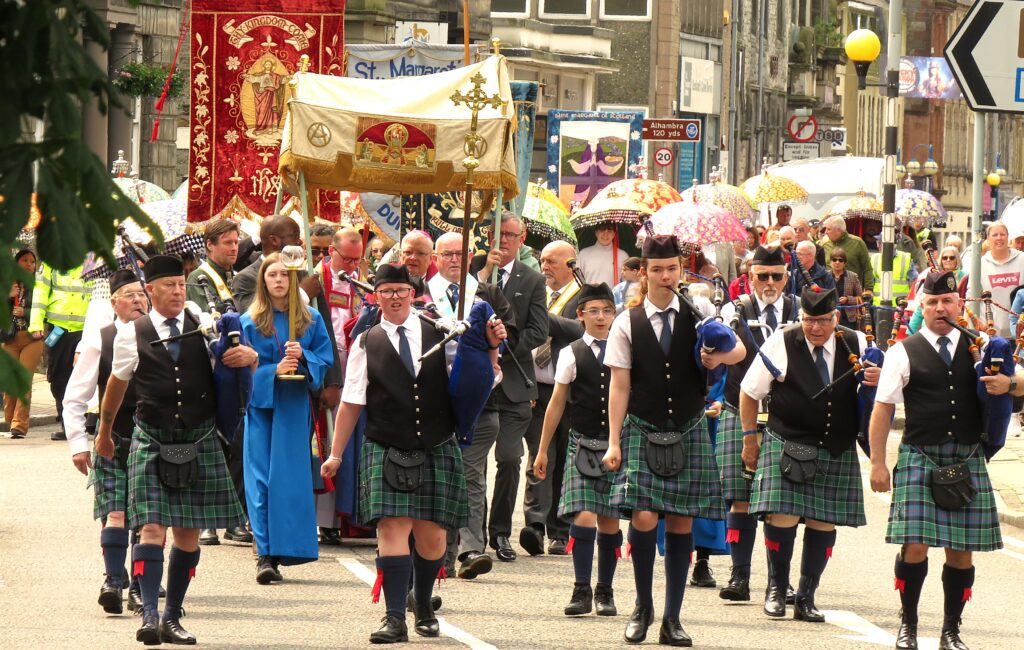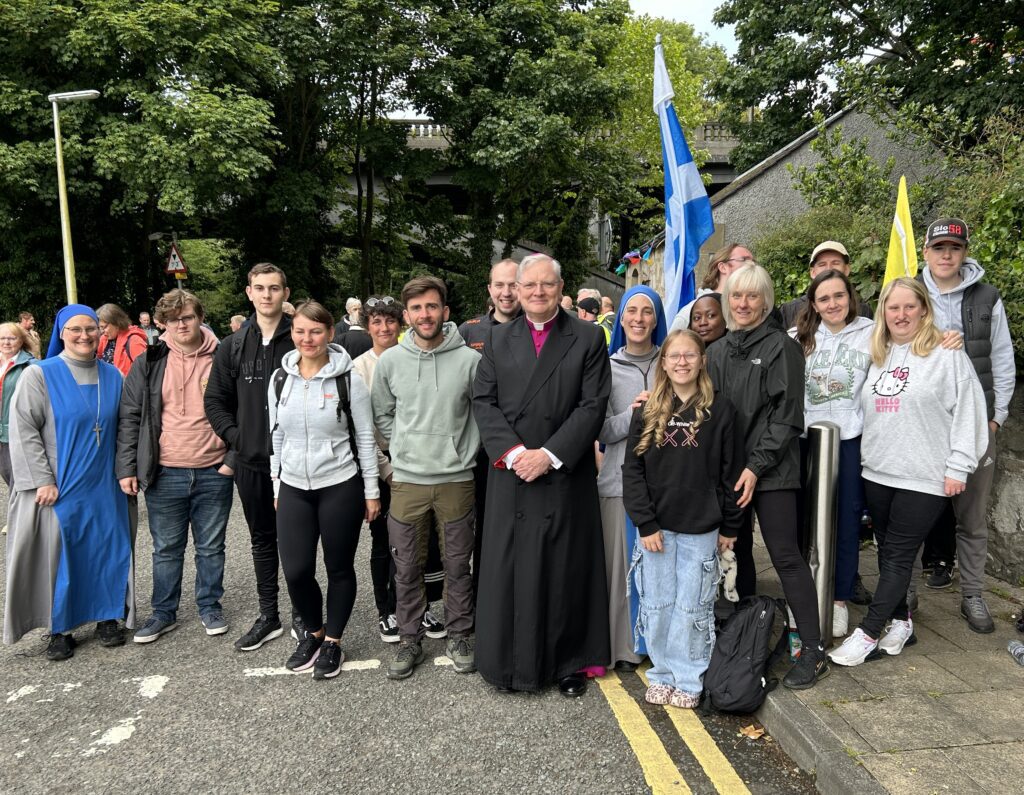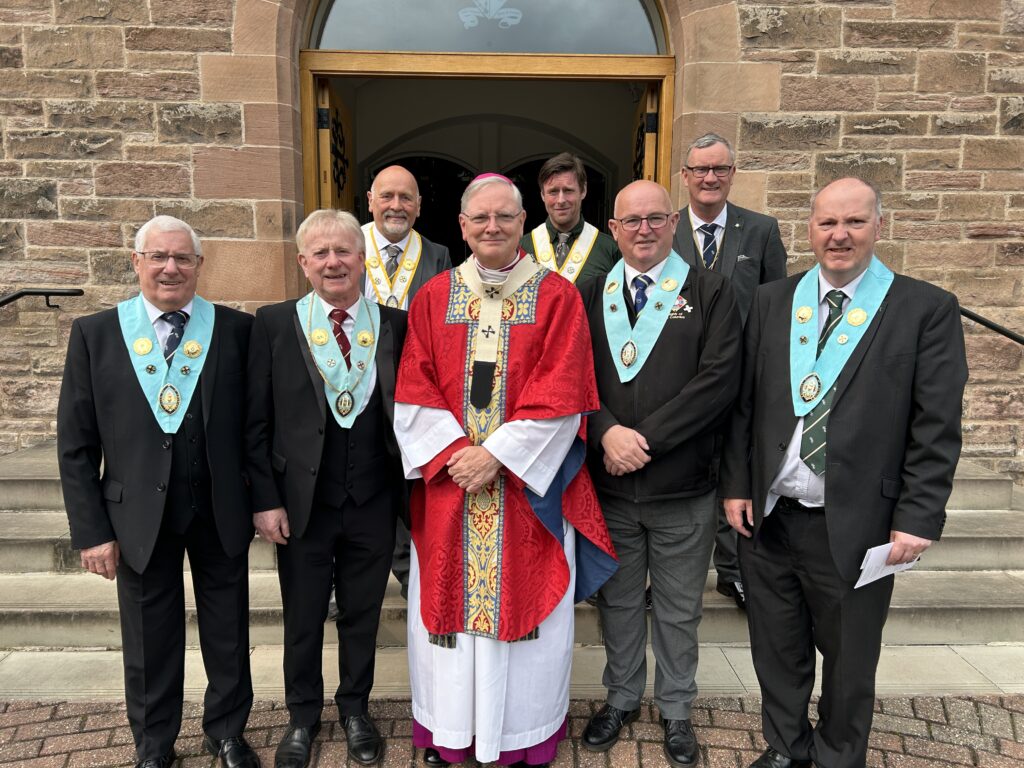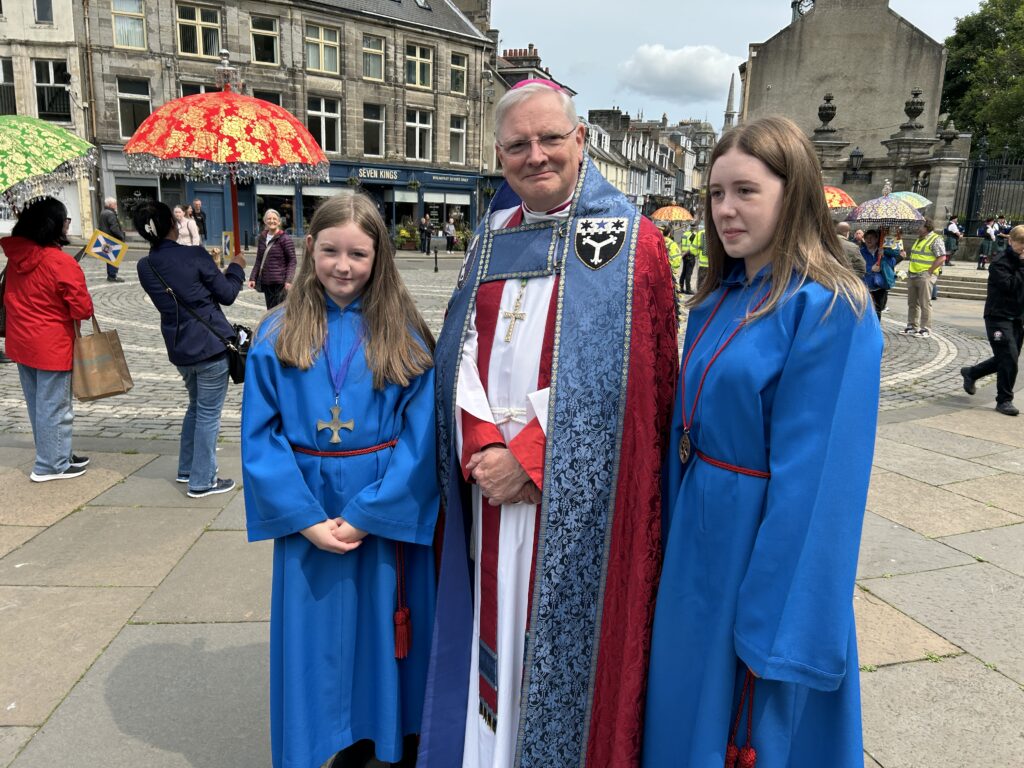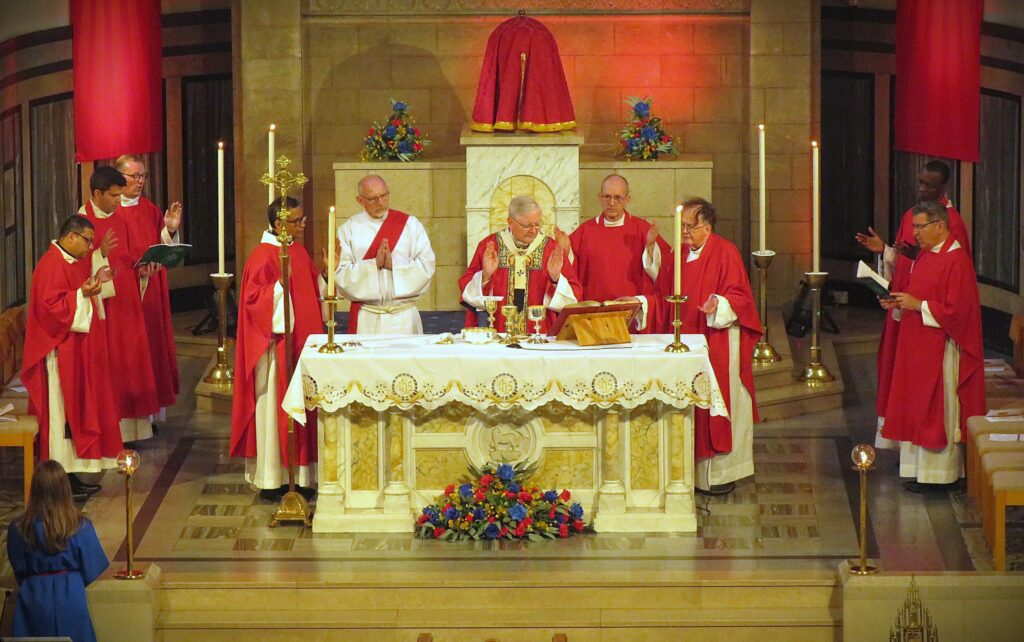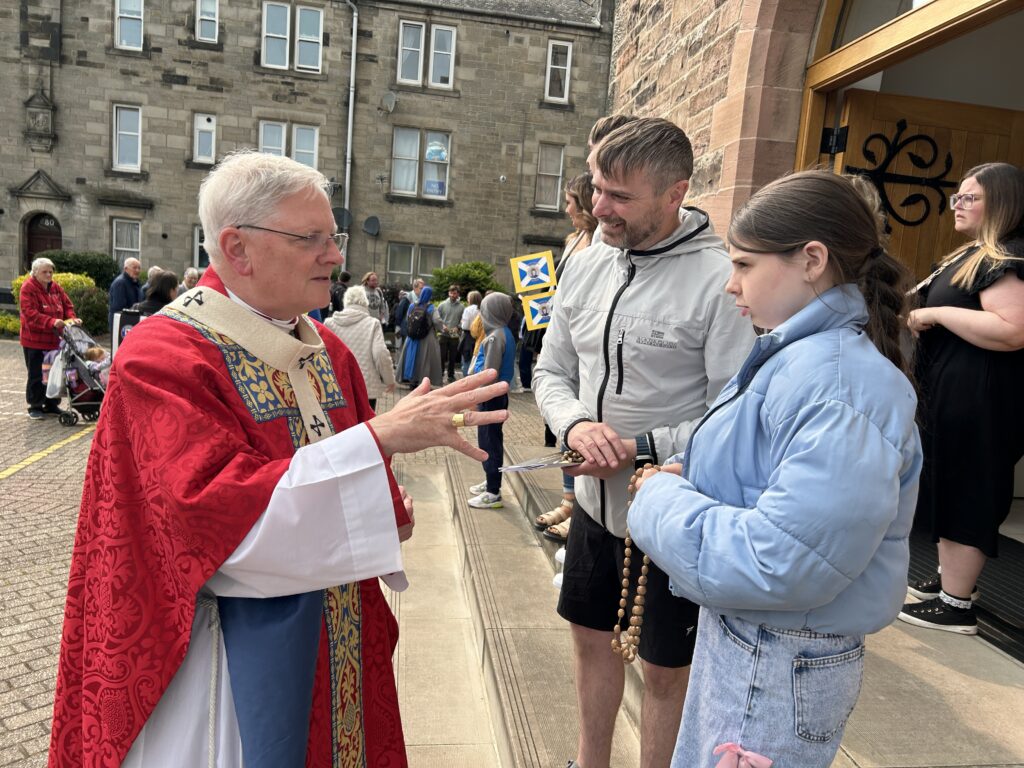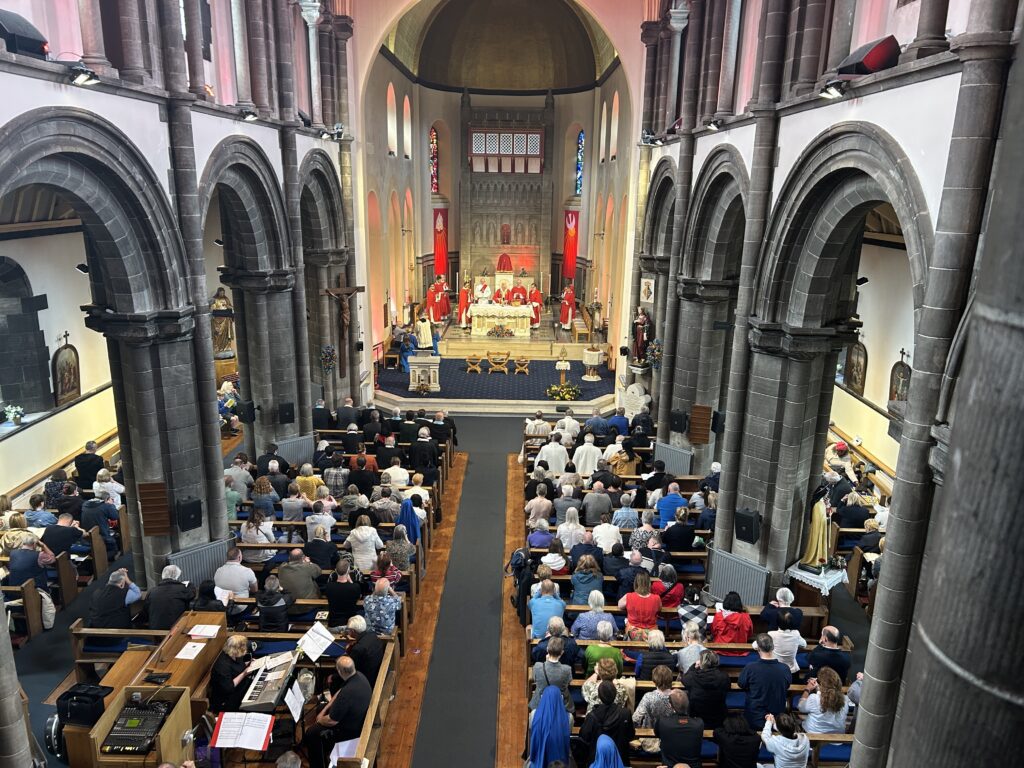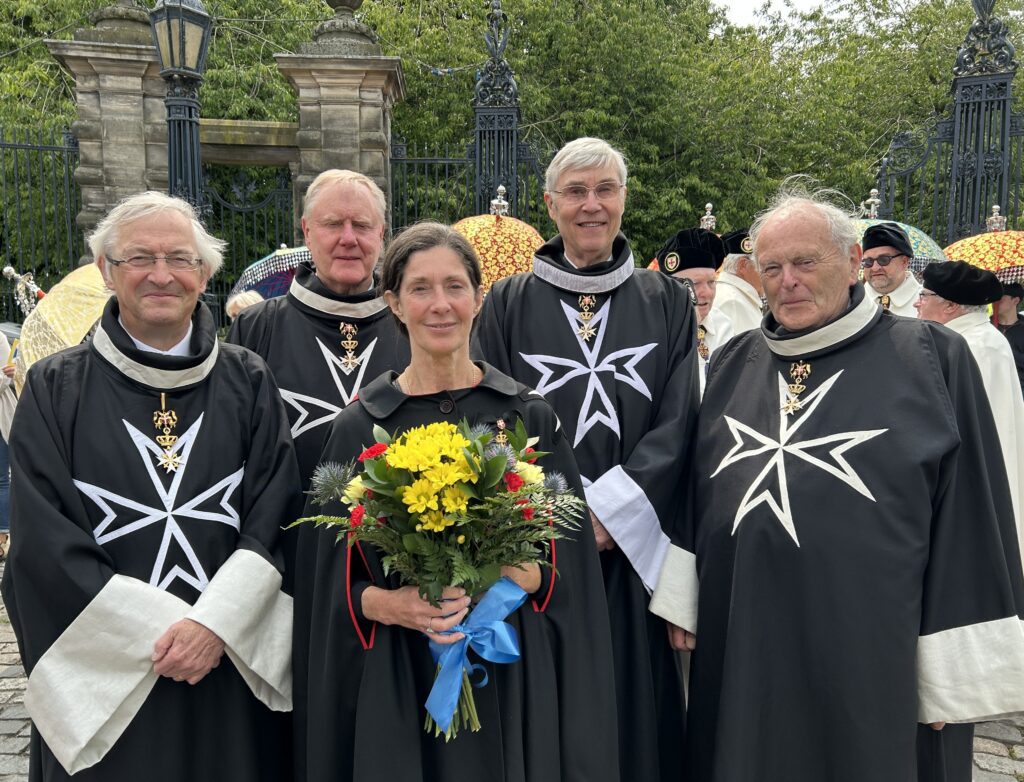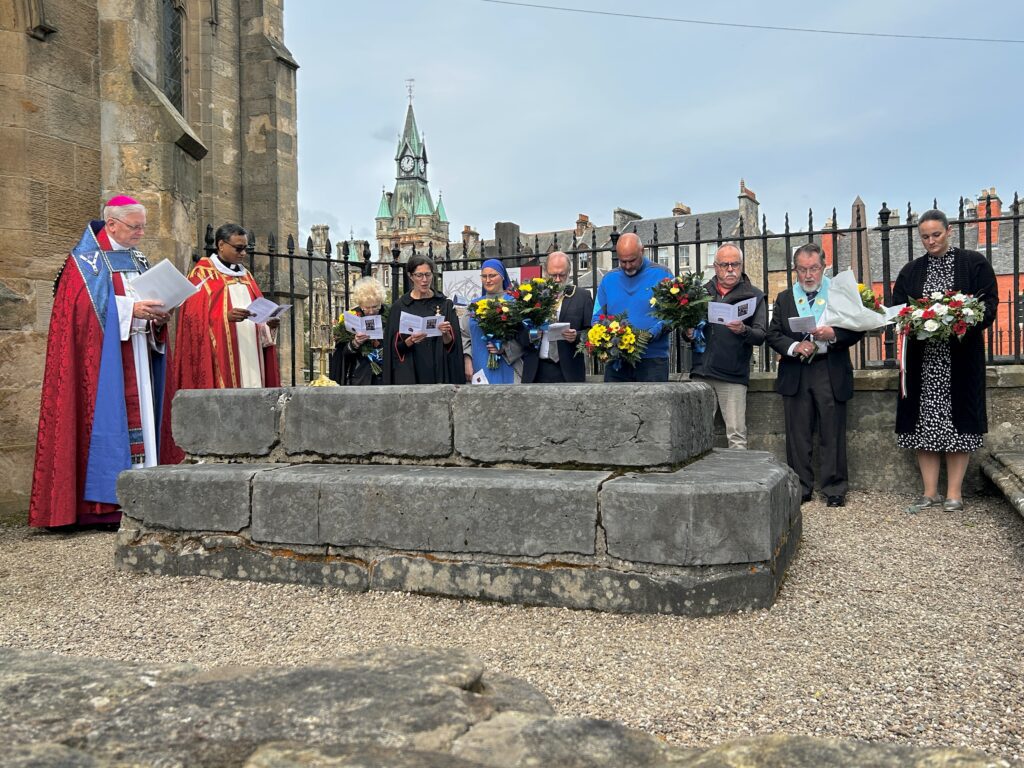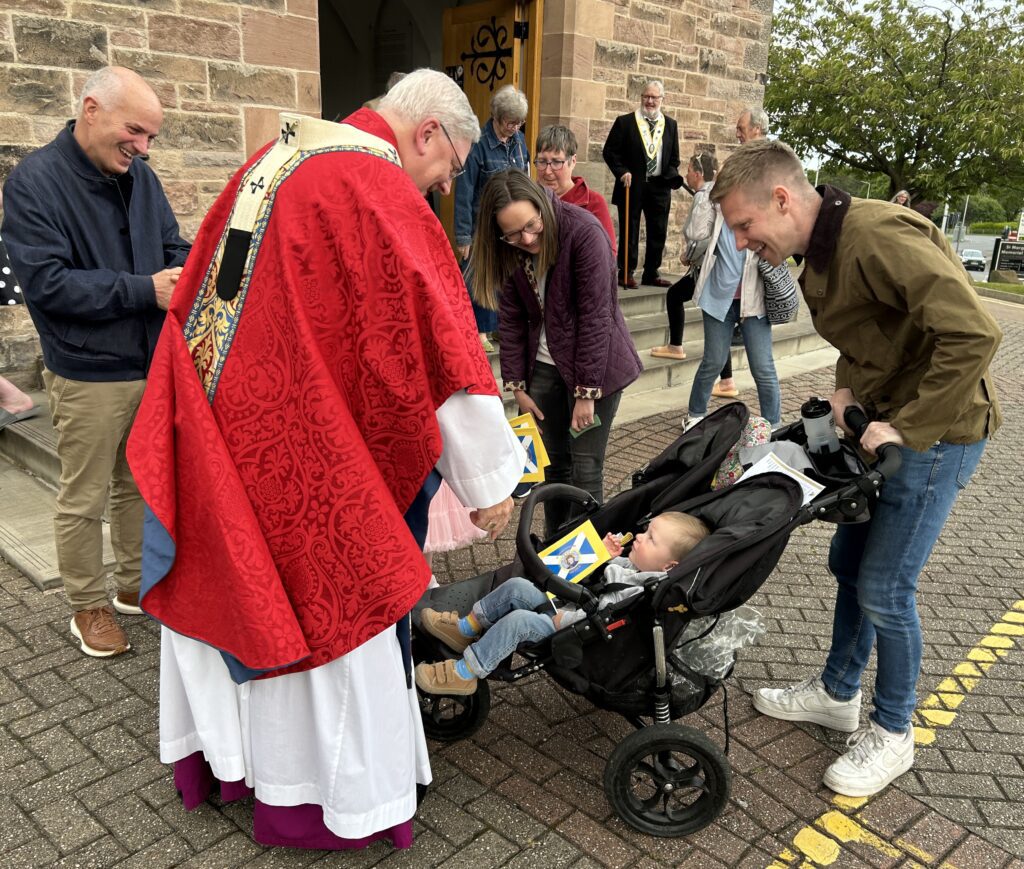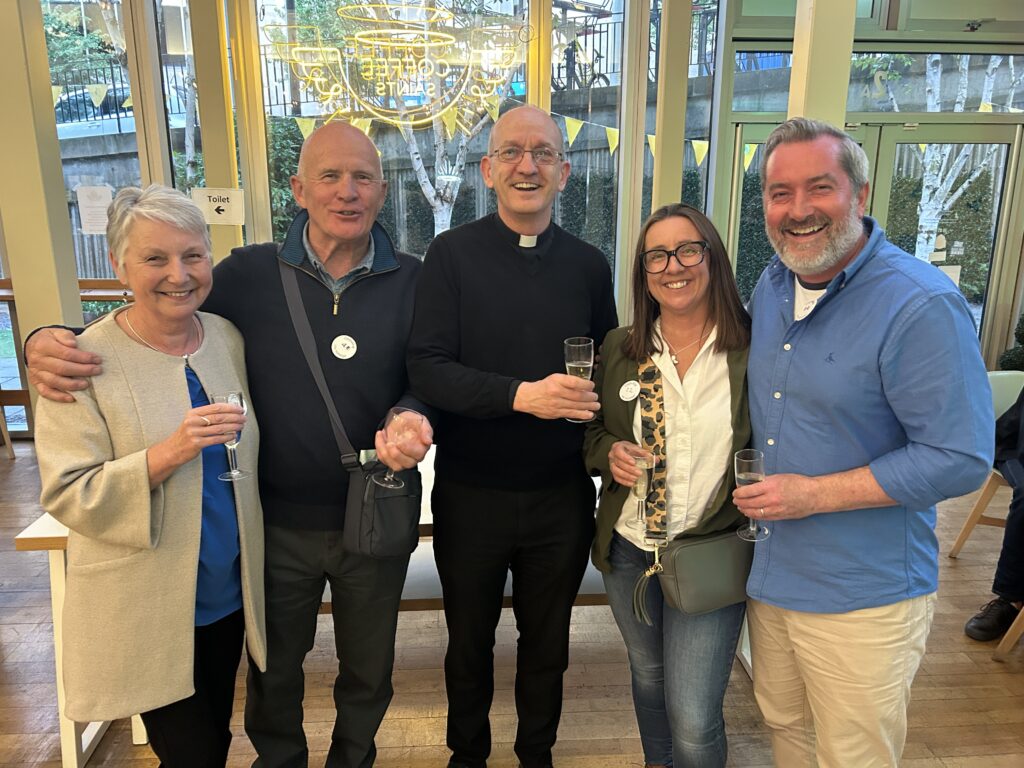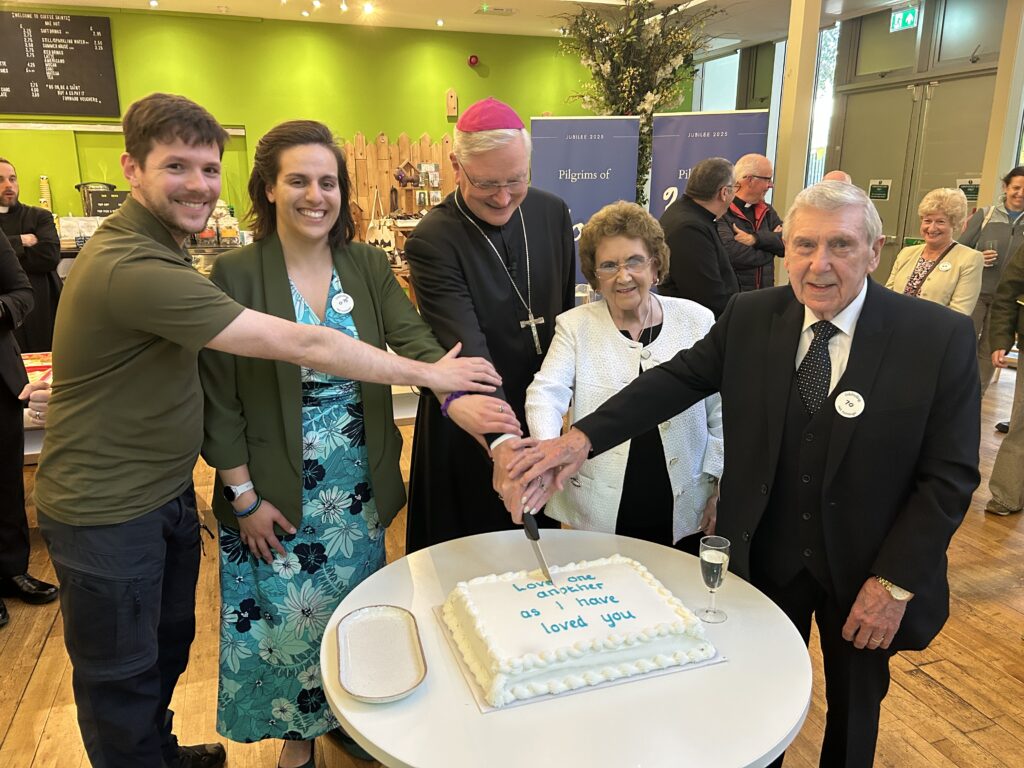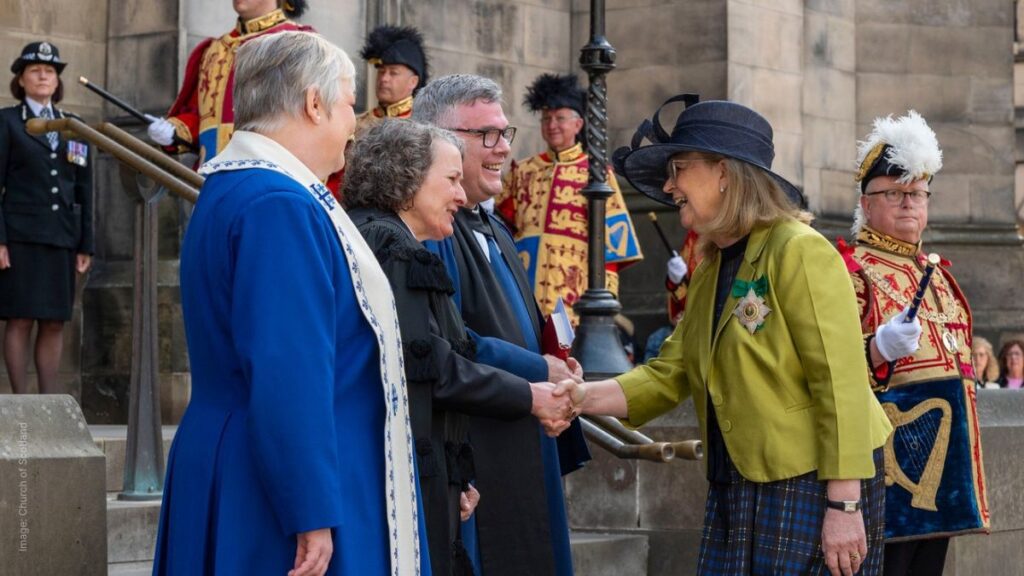Join hundreds of people in Scotland's ancient capital of Dunfermline on Sunday 8 June for the annual St Margaret Pilgrimage.
The highlight of the event is the colourful procession of the saint's relics through Dunfemline city centre led by Archbishop Leo Cushley.
He said: "This Jubilee Year, themed Pilgrims of Hope, offers a unique opportunity to make a pilgrimage on our doorstep, walking in St Margaret's footsteps.
"Our beloved patroness exemplified faith, charity, and leadership, transforming Scotland through her holiness and compassion.
"I look forward to seeing you there and to celebrating the life and work of St Margaret, praying to her for our nation and for our Church."
The procession will begin at 2:00pm from the Louise Carnegie Gates at Pittencrieff Park, opposite the Seven Kings Pub.
The famous relic of St Margaret, which is on display at the Church, will be paraded in the procession.
Hundreds of pilgrims will walk alongside pupils, teachers, nuns, priests and major historic Catholic organisations such as the Knights of St Columba, the Order of Malta and the Equestrian Order of the Holy Sepulchre.
Schedule
12:00pm
Angelus at St Margaret's Cave, Chalmers Street Car Park, KY12 8DQ.
1:00pm
Outside Prayer Service at St Margaret’s Tomb at Dunfermline Abbey, St Margaret Street, KY12 7PE.
2:00pm
Procession with relic from Louise Carnegie Gates in Bridge Street KY12 8DA (opposite Seven Kings Pub) to St Margaret’s Memorial Church. Gather at 1:45pm.
3:00pm
Mass at St Margaret's Memorial Church in East Port, KY12 7JB, celebrated by Archbishop Cushley and priests of the Archdiocese.
Getting there
Bus: Dunfermline Bus station, Queen Anne Street, KY12 7BB, is in the centre of town and is a 5 minute walk from the starting point of the procession.
Train: Dunfermline City train Station, KY12 7HT is a 5-10 minute walk (uphill) from St Margaret's Church, and a 15 minute walk from the start of the procession
Parking
There is on street parking throughout the town centre (charged) and free parking outwith the main town centre.
- Glen Bridge Car Park in Chalmers Street KY12 8DF is the best location for the start of the procession (2 min walk) and for the Angelus (1 min walk). Park and pay. It is often very busy.
- Tesco Car Park, Winterthur Lane KY12 7BD, is a five minute walk from the beginning of the procession starting point and is free.
- The multi-story car park at the Kingsgate Shopping Centre, James Street KY12 7QU, is best for St Margaret's Church (3 min walk). Park and pay
Poster
Download a print poster for your parish here, or a JPG version to share online here.
Walk to Dunfermline
A group from the Holy Family Family Parish will walk from Kelty to Dunfermline and you are welcome to join them. The team, led by sisters of the Religious Family of the Incarnate Word, will leave from St Joseph's Church in Cocklaw Street at 8:00am, expecting to arrive in Dunfermline at midday. Bring a packed lunch. To join them, please email Sr Ostrabrama at m.ostrabrama@servidoras.orgor call 07717 793486.
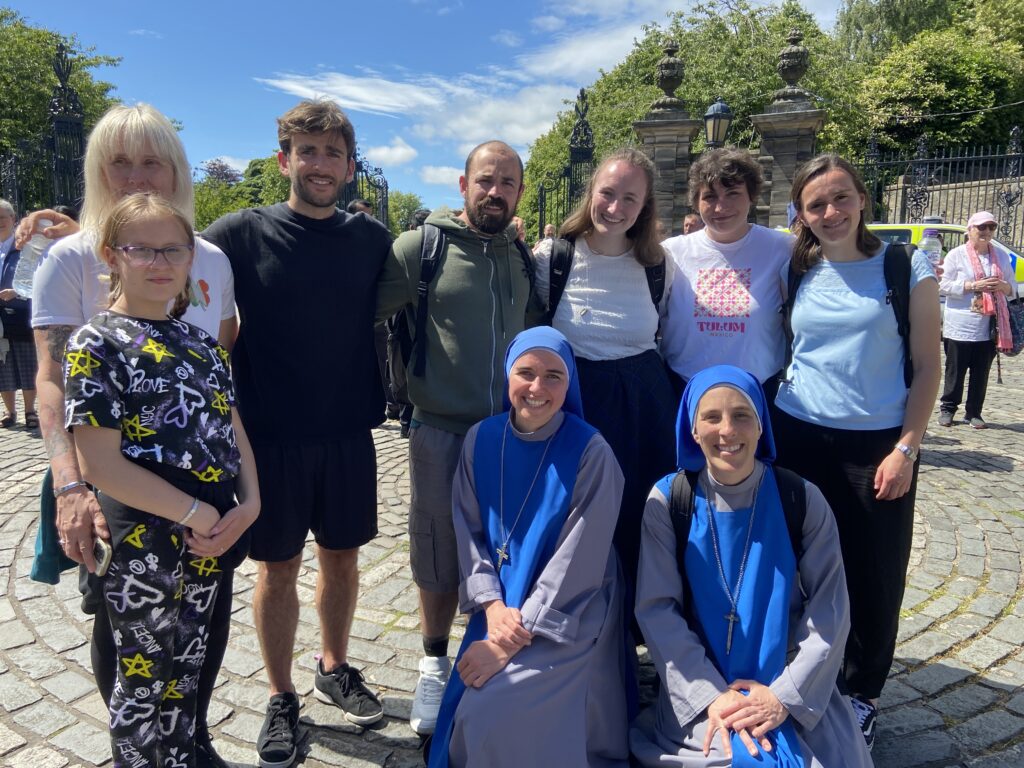
History
The roots of the summer pilgrimage date back to June 1250 when the relics of Saint Margaret were translated to a new shrine in Dunfermline Abbey following her canonisation by Pope Innocent IV.
A pilgrimage to Dunfermline soon emerged and continued until the late 16th Century. It was then resurrected in 1899 and continued again until 1974.
Archbishop Cushley revived it in 2015 and it has continued since then, except for a hiatus due to the Covid pandemic.
Make a Day of it
Why not spend the day in Dunfermline and take advantage of what the historic city has to offer? You can enjoy a wander around Abbot House and its gardens, visit Andrews Carnegie's Birthplace Museum and enjoy the beauty of Pittencrieff Park (known locally as 'The Glen'). There are many cafes, pubs and restaurants in the city centre. Alternatively you can come for any part of the programme. Whatever you decide, we look forward to welcoming you! See dunfermline.com
Queries
You can contact the helpful team at St Margaret's Church in Dunfermline with any questions about the event: priest.stmargaretdunfermline@staned.org.uk. Alternatively, email matthew.meade@staned.org.uk
